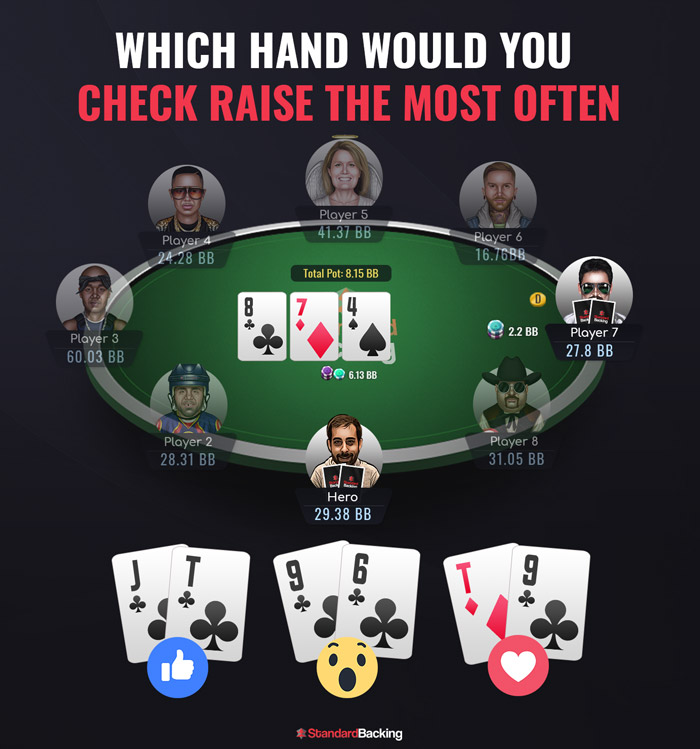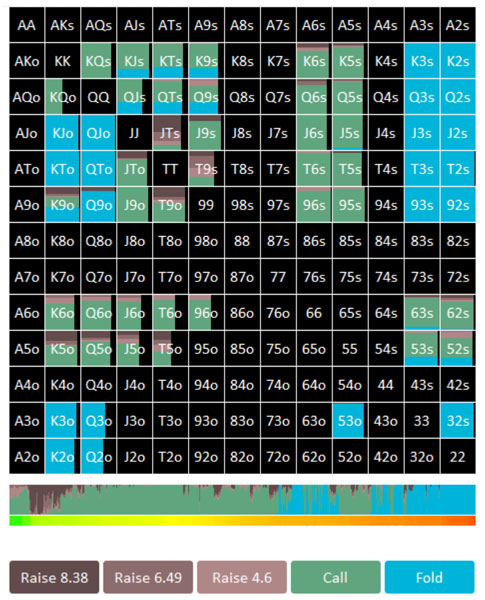
Tournament 8-max (antes 12.5%)
BTN (30BB) opens to 2.2BB
SB (31BB) folds
Hero BB (30BB) calls 2.2BB
Flop (pot 6.13BB): 8♣7♦4♠
BTN bets 2.2BB (33%)
Hero is your turn to act.
which hand would you check-raise more often with? ????
a) J♣T♣
b) 9♣6♣
c) T♦9♣
We must remember that poker is clearly an exploitative game, and we must adjust our strategy to the leaks we detect in our opponents. Your opponent’s c-bet size and frequency greatly impact what your check-raise range should look like.
If your opponent c-bets relatively infrequently, respond by check-raising conservatively. If your opponent c-bets often or uses a small c-bet size, check-raise with a wider-than-usual range.
The bet size matters a lot too. Small c-bet sizes are often indicative of a relatively wide and merged range, which allows the Big Blind to check-raise more often. Large c-bet sizes usually coincide with a more polarized range, which is best countered with either a call or fold– not a raise.
In this case, let’s take a look at what solvers say, assuming we input the correct ranges and frequencies this gives us this result:

As we can see the 3 combos are perfectly valid for a check-raise, but J♣T♣ it’s clearly better to use more often than the others. let’s think a little more deeply about why is this:
- it blocks hands such as TT, JJ
- 2 over cards that find outs vs hands like 8x, 6x, 99, TT
- it blocks hands such as JT, QJ, KJ, KT that continues barreling.
- it has Gutshot straight draw to the nuts
Important of having a balanced Check-Raising Strategy
It’s important to have a well-balanced check-raising strategy–the correct ratio of value bets to bluffs in order to remain unexploitable–especially against tough competition.
Consider an extreme example: a player in the Big Blind that check-raises with strong value hands and nothing else. This player opens themselves up to exploitation in multiple ways:
- The in position player can confidently make hero folds whenever he gets check-raised, continuing with only his strongest hands
- When the Big Blind check-calls, the in position player can barrel the turn and river at a high frequency
To avoid getting exploited like this, you need to focus on balancing your check-raise range with both value bets and bluffs.
Players that don’t check-raise are easy to beat.
Full article by upswingpoker.com
leave your comment below ????
BECOME A POKER PROFESSIONAL TODAY!
We review all applications carefully and
reply to all applications within 5 business days.

